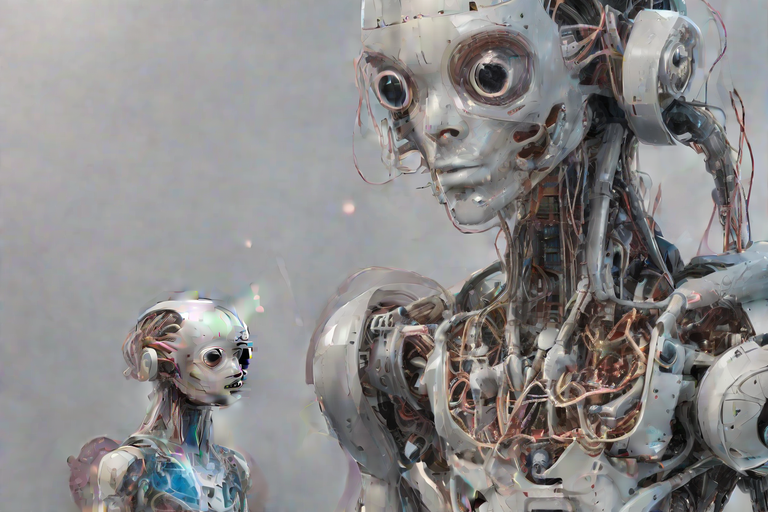Our understanding of what constitutes ‘mental well-being’ is skewed because of the way in which we automatically assume that most of us are – in an essential way – ‘orientated towards the truth’. This might sounds like a reasonable enough assumption but actually it’s very naïve – self-observation always shows – if we are willing to engage in such a thing – that the truth is generally the last thing we want to know about. Our default mode is to be orientated towards comforting or convenient fictions, not the truth. This may be said to be a fundamental psychological truth – the Principle of Unconscious Self-deception.
We are all, in other words, prejudiced towards seeing what it suits us to see; were our filters, our invisible information-processing biases, to fail us to whatever degree then this would be highly uncomfortable for us. Naturally this going to be uncomfortable – who wants to have their opinions, their beliefs, their point of view, falsified by information that doesn’t match what we need it to match? It is possible to have a properly scientific attitude, which is where we are delighted to discover that our theories are incorrect – we are delighted because in this way we are moving closer to the truth. As scientists, the truth is what we are interested in, after all! Having said this, however, scientists are as human as the rest of us and are just as resistant therefore to having their understanding of things overturned. This is why Max Planck says that science progresses ‘one funeral at a time’. Or in his exact words,
A new scientific truth does not triumph by convincing its opponents and making them see the light, but rather because its opponents eventually die, and a new generation grows up that is familiar with it.
To be interested in being surprised (rather than being interested in being proved right) is to be a player of what Carse calls the Infinite Game. We are orientated towards finite games when we are motivated by whatever seems to be to our own personal advantage, whilst if we are playing the Infinite Game this is because we value the truth more than what may or may not prove to be personally advantageous to us. The difference is very easy to explain and it is of immense significance; the difference between the one orientation and the other is all-determining when it comes down to what happens (or doesn’t happen) in the course of our lives. When we play a finite game then we will always be proved right with regard to the assumptions that we have made and so because of this we will continue to play that game we will be stuck in it for the whole of our lives. The endless ‘repetition of the known’ will be the be all and end all for the rest of our lives.
To not be invested in being proven right in our assumptions is to be forever open to radical change on the other hand, and so there is no getting stuck here. When we are in the Closed Mode of being then we are constantly fixated upon goals, which represents change to us whilst actually being the means by which we ensure that change can never take place. This is key element of the trick. When we are in Open Mode, on the other hand, then goals simply aren’t where it’s at all for us; being interested in goals is a sure sign that we’re interested in affirming and reaffirming the relevance of the frame of reference which makes these goals meaningful. What’s driving us is not curiosity in this case but conservatism. The conservative modality of existence is necessarily based on self-deception; it is based on self-deception because we are fooling ourselves that we are committed to preserving some great value when actually this ‘great value’ is entirely bogus – it is merely an excuse for not having any interest in actual reality. We’re making fantasy into the important thing, rather than that which is not fantasy. We’re promoting the unreal at the expense of the real, which is of course just another way of talking about lying.
Finite games contain a contradiction that we cannot allow ourselves to be aware of if we are to continue playing them; the contradiction is that YES is the same as NO and if we saw this then all play would have to come to an end (since the game is all about obtaining the one rather than the other). If obtaining the goal is the same as not obtaining it then all motivation dries up instantly – that’s the end of the show, in this case. Having said this much, there can be no doubt about the crucial role of self-deception in everyday life. It’s very easy to see that this is the normal way of things – being orientated to the truth is the exception, not the rule. We can look at this in terms of the virtue of ‘innocence’ – when we are young we are ‘innocent with regard to the ways of the world’ and in due course we become infected, we become culturally contaminated. As Thomas Traherne puts it in Centuries of Meditation, we are ‘made to learn the dirty devices of this world’.
Innocence isn’t anything to do with sexuality, which is how Christianity tends to see it; it has to do with honesty, and particularly to do with the question of being honest with ourselves. The lack of honesty with ourselves is where the corruption of which we speak is really to be found. ‘Lying fills all our life,’ says P.D. Ouspensky, and by ‘lying’ he means ‘pretending to know things that we don’t’, which is clearly something we all do all of the time! If we didn’t lie in this way (and pretend to know stuff we don’t) then no one would take us seriously – we would be excluded from our public discourse, we would be laughed at for being fools. Ouspensky goes so far as to say that a good definition of psychology would be ‘The Study of Lying’. Instead of saying that our loss of innocence has to do with us pretending to know stuff when we don’t (and falling for our own pretence in this matter) we could just say that it has to do with us pretending to be who or what we aren’t, and then losing sight of this pretending. We identify with our roles to the extent of thinking that we are them, as Jung says. ‘Pretending to know what we don’t know’ inevitably gives rise to the phenomenon of ‘pretending to be what we aren’t’.
Instead of asking ourselves if we are finite or infinite game players (which sounds exactly like the sort of question we might come across on a social media site) we could simply ask ourselves ‘Do we imagine ourselves to actually know stuff or not?’ because this comes to the very same thing. We can only know things in a finite game because in this case everything is anchored to a fixed way of seeing the world, a fixed set of values. The only thing that matters in a finite game is winning, after all, and if there is to be such a thing as winning then it has to be defined in relation to a framework of reference that no one is allowed to question. Finite games rely on ‘not questioning’, therefore. That’s the only way they can work. The play of shadows can only get under way when the light is denied; the unconscious life can continue only as long as there is no consciousness. To live in the default, socially conditioned mode is to play the finite game, and so if our discussed the question of what mental health is or is not is to be in any way meaningful then this has to be taken into consideration. Otherwise, we’re talking about ‘the mental health of who we pretend to be without knowing that we are pretending’, and that is another matter entirely.
To talk about the mental health of who we pretend to be without knowing we are pretending as if this were actually a real thing, as if this were in any way a meaningful concept to be discussed, is to perpetuate a lie. There’s no other way to put it – it’s not the case that this is a ‘mistaken’ or ‘inaccurate’ viewpoint, but rather that the viewpoint in question is a perfect inversion of the truth. When we enshrine as dogma something that is a perfect inversion of the truth then no good can come from this, clearly! This is of course putting it very mildly – when we see things backwards like this then that means that what we are promoting is the inverse of mental health rather than the real thing. The inverse of mental health isn’t what we might think it is – it isn’t a painful or miserable state of being because if we were in a miserable or painful state of being then that would have some honesty in it, which would be helpful to us. Honesty is always helpful, after all! The ‘inverted version of mental health’ is where we say and believe that we are doing well, when this isn’t the case at all. The inverted version of mental health is successful denial, in other words.
Successful denial just happens to be the very thing that our culture specialises in selling. Whenever we see images of happy, fulfilled people engaging enthusiastically in their socialised tasks and joyfully living the type of life that has been given to them to live then this is successful denial. The image of the happy consumer is the emblem of psychological denial. We all agree amongst ourselves that such and such is the optimum way to live our lives, that such and such is ‘the ideal’, and no one is allowed to come up with any dissenting arguments. If they do then their voices will be excluded from the public discourse in the time-honoured fashion! It’s easy enough to explain what the ‘inverted version of well-being’ looks like – it is the superficial appearance of health, the superficial appearance of happiness, along with the ability to adapt to the world of superficial appearances such that we fully believe that these appearances are both real, and the only thing that matters in life. The key thing here is insulation and plenty of it – if we are to continue with this superficial analogue (or parody) of life then we must be well and truly shielded from what lies beneath the service-level appearance of things. The denial of how we really feel must be watertight, and if the pain does start to leak through, and cannot be staunched by our tricks, then it is this failure of the system of denial that is to be considered the sickness, not our pathological way of life.
Image taken from bbc.com






